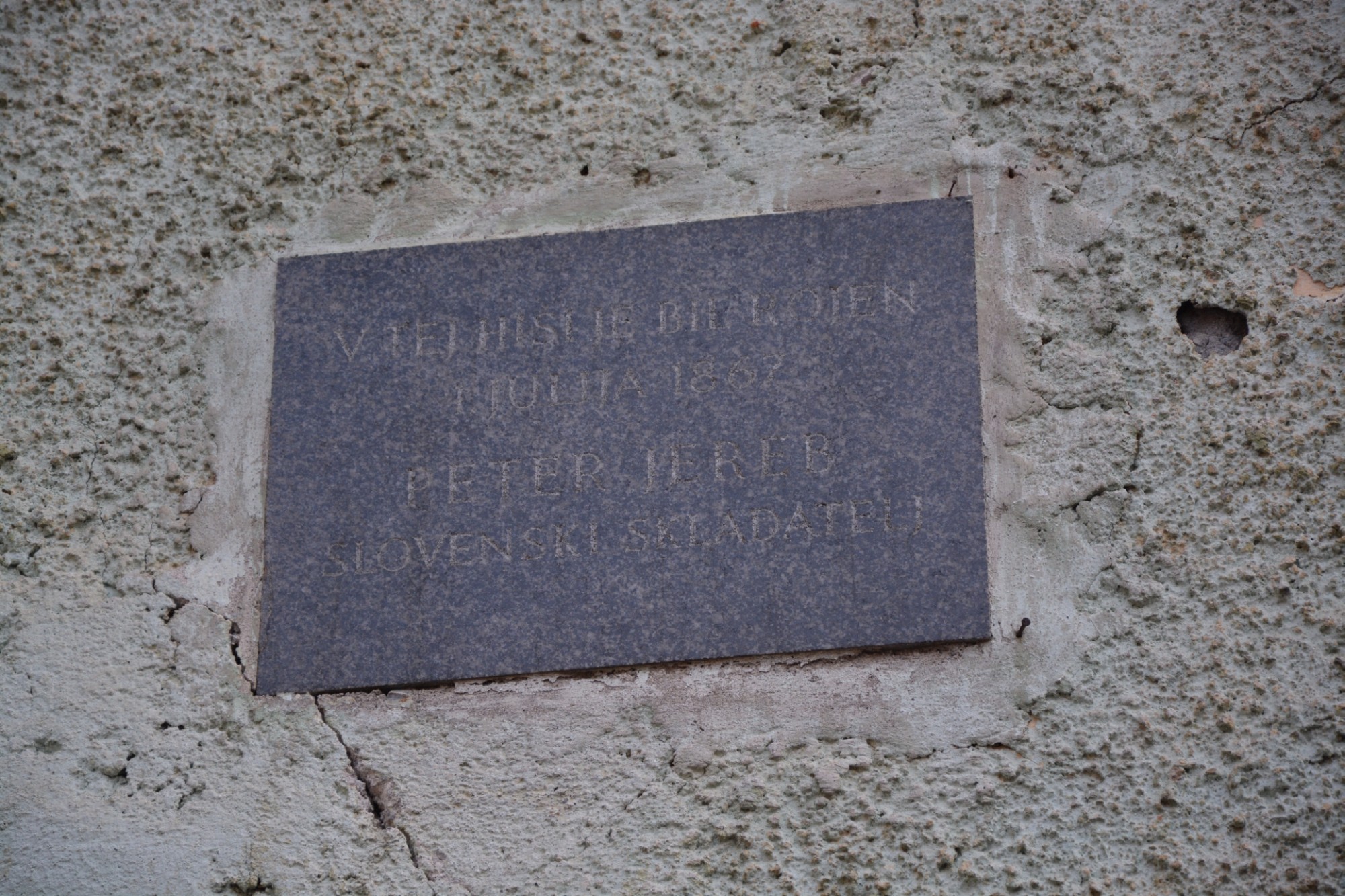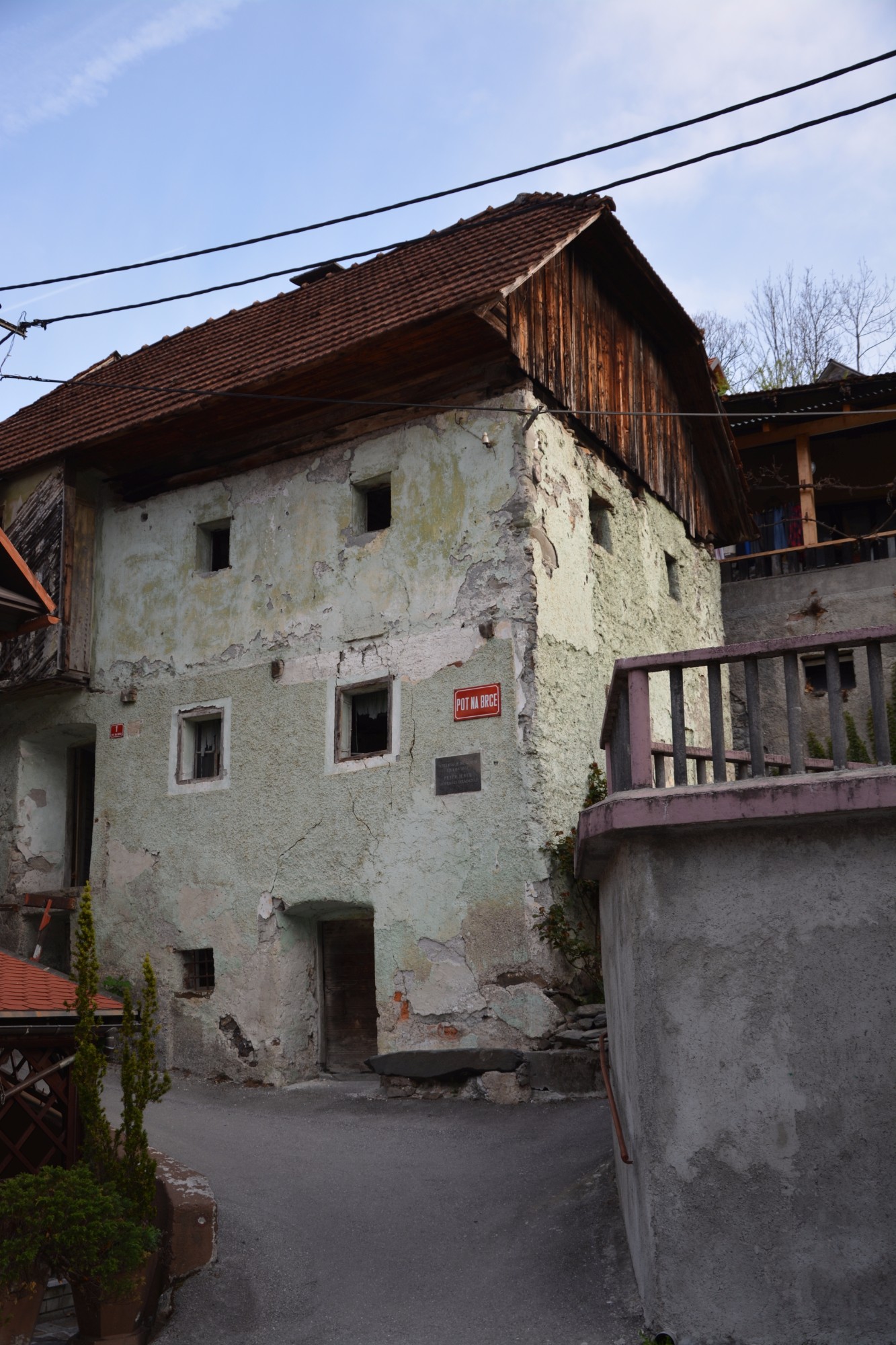In 1967, a memorial plaque to Peter Jereb was attached to his birthplace in Cerkno in commemoration of the centennial of his birth. The plaque that was unveiled by the composer Makso Pirnik reads:
SLOVENIAN COMPOSER
PETER JEREB
WAS BORN IN THIS HOUSE
ON 1 JULY 1867
Peter Jereb
Musician and composer Peter Jereb (1867–1951) scored numerous popular church and secular choral works.
Jereb was born in Cerkno in the Goriška County. Having lost his parents in early youth, he was raised by his uncle. Jereb started to take violin lessons while still at school in Cerkno, later on furthering his music studies at the Organ School in Ljubljana. He then worked in Litija as an organist, and was also actively involved in the local concert band and running the Litija Choral Society Lipa.
Jereb composed countless church and secular works for male and mixed choirs. Written in a simple style, the compositions were suitable for performance by provincial choral ensembles and societies. That his songs enjoyed widespread popularity among the rural population can also be attributed to the folk melodic fabric, ‘national spirit’ and sentimentality that informed Jereb’s compositions. His church works display influences of the principles of the Caecilian Movement. He published a songbook of 10 pieces for male and mixed choirs (1924), and contributed individual compositions for publication in Cerkveni glasbenik (Church Musician). Some of his most noteworthy church works are Graduale in festo s. Joachim for male choir (1897), the Bone pastor motet for male choir (1914) and Ave Maria for mixed choir (1915). His most popular secular compositions are Pelin-roža, Kam si šla, mladost ti moja, Napitnica, Prepelica, Na Posavju and Vetrček moj (Absinthe-Flower; Where Have You Passed To, My Youth; A Toast; A Quail; In Posavje; This Breeze of Mine).
Maia Juvanc


